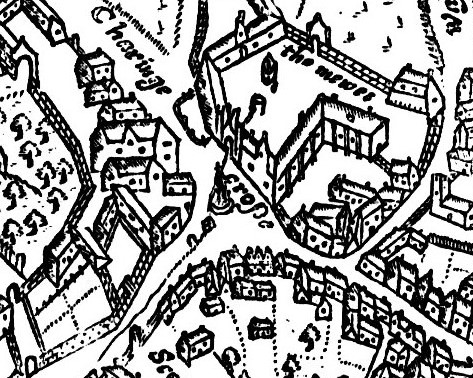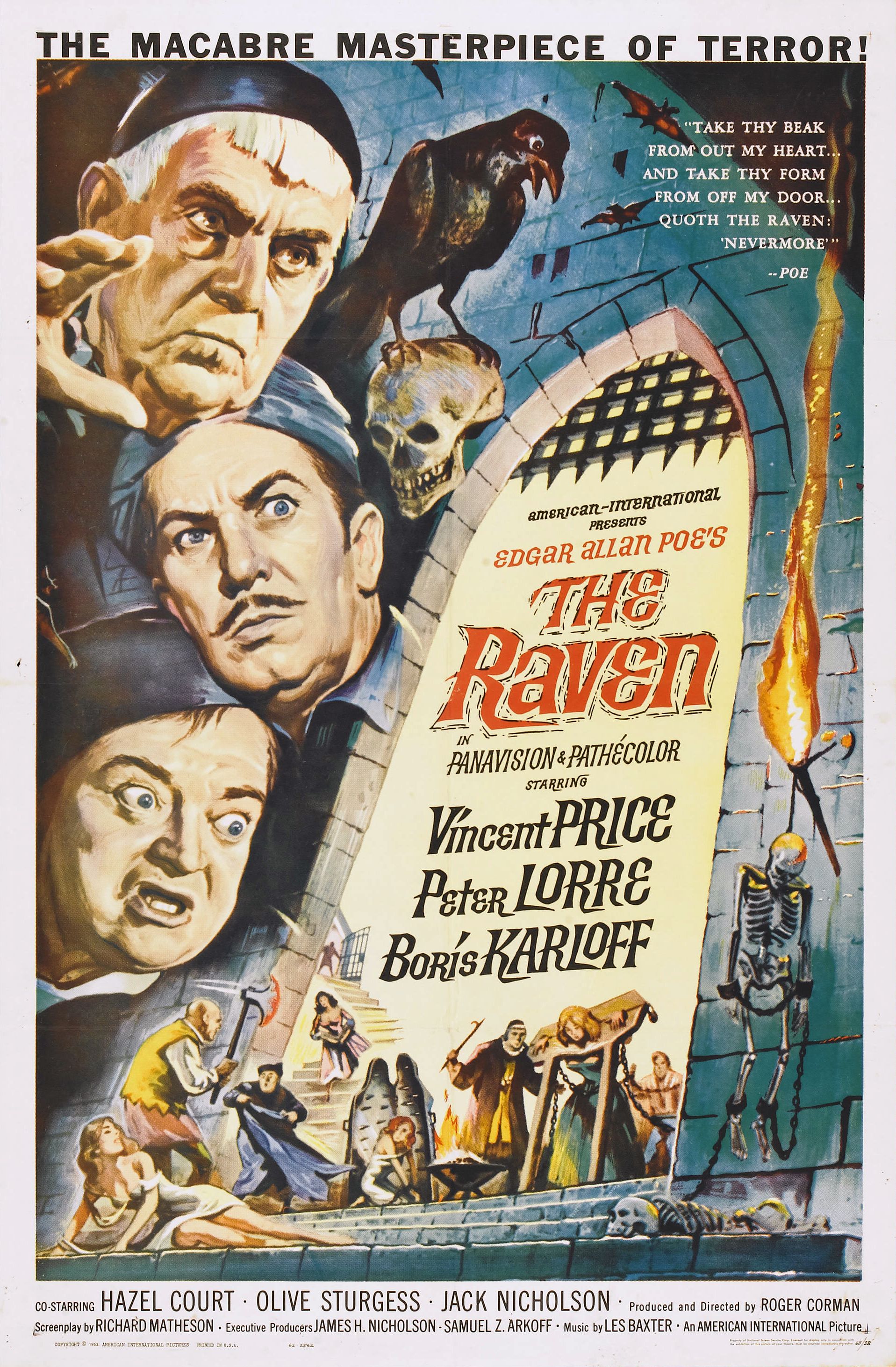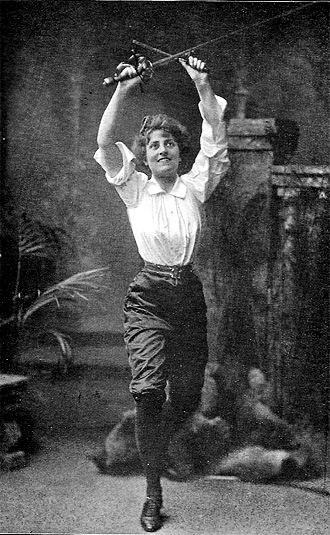|
Something In The City
''Something in the City'' is a 1950 British comedy film directed by Maclean Rogers and starring Richard Hearne, Garry Marsh and Ellen Pollock. It includes an early uncredited performance by Stanley Baker as a police constable. Plot Mr Ningle has been living a lie for seven years by pretending to still be commuting to his financial services job in the City of London from which he had been sacked. Every day, he journeys in and changes into the disguise of his alter ego: an artist who sells paintings on the pavement in Trafalgar Square. His life is thrown into turmoil when his deception is nearly discovered by Mr. Holley, the father of his daughter Beryl's new fiancé, Richard. The father happens to be the managing editor of the ''Evening Courier'' newspaper, and worried about his prospective in-laws. A series of misunderstandings lead to the mistaken belief that Ningle has been murdered by "Arty the artist", leading to a massive police manhunt. Ningle manages to stage a fake su ... [...More Info...] [...Related Items...] OR: [Wikipedia] [Google] [Baidu] |
Maclean Rogers
Maclean Rogers (13 July 1899 – 4 January 1962) was a British film director and screenwriter. Selected filmography Director * '' The Third Eye'' (1929) * ''The Mayor's Nest'' (1932) * '' Up for the Derby'' (1933) * ''The Crime at Blossoms'' (1933) * '' Trouble'' (1933) * ''Summer Lightning'' (1933) * '' It's a Cop'' (1934) * '' Virginia's Husband'' (1934) * '' The Scoop'' (1934) * '' The Feathered Serpent'' (1934) * '' The Right Age to Marry'' (1935) * ''Old Faithful'' (1935) * '' Marry the Girl'' (1935) * '' A Little Bit of Bluff'' (1935) * ''All That Glitters'' (1936) * '' Twice Branded'' (1936) * '' A Wife or Two'' (1936) * '' Nothing Like Publicity'' (1936) * '' Not So Dusty'' (1936) * '' Busman's Holiday'' (1936) * '' Strange Adventures of Mr. Smith'' (1937) * '' The Heirloom Mystery'' (1937) * '' Why Pick on Me?'' (1937) * '' Farewell to Cinderella'' (1937) * '' Racing Romance'' (1937) * '' Father Steps Out'' (1937) * ''His Lordship Regrets'' (1938) * '' Easy Riches'' ... [...More Info...] [...Related Items...] OR: [Wikipedia] [Google] [Baidu] |
Trafalgar Square
Trafalgar Square ( ) is a public square in the City of Westminster, Central London, laid out in the early 19th century around the area formerly known as Charing Cross. At its centre is a high column bearing a statue of Admiral Nelson commemorating the victory at the Battle of Trafalgar. The battle of 21 October 1805, established the British navy's dominance at sea in the Napoleonic Wars over the fleets of France and Spain. The site around Trafalgar Square had been a significant landmark since the 1200s. For centuries, distances measured from Charing Cross have served as location markers. The site of the present square formerly contained the elaborately designed, enclosed courtyard of the King's Mews. After George IV moved the mews to Buckingham Palace, the area was redeveloped by John Nash, but progress was slow after his death, and the square did not open until 1844. The Nelson's Column at its centre is guarded by four lion statues. A number of commemorative statues and sc ... [...More Info...] [...Related Items...] OR: [Wikipedia] [Google] [Baidu] |
Second Feature
A B movie or B film is a low-budget commercial motion picture. In its original usage, during the Golden Age of Hollywood, the term more precisely identified films intended for distribution as the less-publicized bottom half of a double feature (akin to B-sides for recorded music). However, the U.S. production of films intended as second features largely ceased by the end of the 1950s. With the emergence of commercial television at that time, film studio B movie production departments changed into television film production divisions. They created much of the same type of content in low budget films and series. The term ''B movie'' continues to be used in its broader sense to this day. In its post-Golden Age usage, B movies can range from lurid exploitation films to independent arthouse films. In either usage, most B movies represent a particular genre—the Western was a Golden Age B movie staple, while low-budget science-fiction and horror films became more popular in th ... [...More Info...] [...Related Items...] OR: [Wikipedia] [Google] [Baidu] |
Location Shooting
Location shooting is the shooting of a film or television production in a real-world setting rather than a sound stage or backlot. The location may be interior or exterior. The filming location may be the same in which the story is set (for example, scenes in the film ''The Interpreter'' were set and shot inside the United Nations Headquarters in Manhattan), or it may stand in for a different locale (the films ''Amadeus'' and '' The Illusionist'' were primarily set in Vienna, but were filmed in Prague). Most films feature a combination of location and studio shoots; often, interior scenes will be shot on a soundstage while exterior scenes will be shot on location. Second unit photography is not generally considered a location shoot. Before filming, the locations are generally surveyed in pre-production, a process known as location scouting and recce. Pros and cons Location shooting has several advantages over filming on a studio set. First and foremost, the expense can often ... [...More Info...] [...Related Items...] OR: [Wikipedia] [Google] [Baidu] |
Walton-on-Thames
Walton-on-Thames, locally known as Walton, is a market town on the south bank of the Thames in the Elmbridge borough of Surrey, England. Walton forms part of the Greater London built-up area, within the KT postcode and is served by a wide range of transport links. According to the 2011 Census, the town has a total population of 22,834. The town itself consists mostly of affluent suburban streets, with a historic town centre of Celtic origin. It is one of the largest towns in the Elmbridge borough, alongside Weybridge. History The name "Walton" is Anglo-Saxon in origin and is cognate with the common phonetic combination meaning "Briton settlement" (literally, "Welsh Town" – weal(as) tun). Before the Romans and the Saxons were present, a Celtic settlement was here. The most common Old English word for the Celtic inhabitants was the "Wealas", originally meaning "foreigners" or "strangers". William Camden identified Cowey Stakes or Sale, Walton as the place where Julius Ca ... [...More Info...] [...Related Items...] OR: [Wikipedia] [Google] [Baidu] |
Mackenzie Ward
Mackenzie Ward (20 February 1903 – January 1976) was a British stage and film actor An actor or actress is a person who portrays a character in a performance. The actor performs "in the flesh" in the traditional medium of the theatre or in modern media such as film, radio, and television. The analogous Greek term is (), li .... Filmography Bibliography * Low, Rachael. ''History of the British Film: Filmmaking in 1930s Britain''. George Allen & Unwin, 1985 . References External links * * 1903 births 1976 deaths English male film actors English male stage actors People from Eastbourne 20th-century English male actors British expatriate male actors in the United States {{british-actor-stub ... [...More Info...] [...Related Items...] OR: [Wikipedia] [Google] [Baidu] |
Esme Beringer
Esme Beringer (5 September 1875 – 31 March 1972) was an English actress who was noted for her bartitsu fencing skills. Early life Esme Beringer was born in London, the daughter of pianist Oscar Beringer and novelist and playwright Aimée Daniell Beringer.Johnson Briscoe"September 5: Esme Beringer"''The Actor's Birthday Book'' (Moffat, Yard 1907): 200. Her younger sister Vera Beringer was best known as a child actress."Vera Beringer" ''The Era Annual'' (1897): 29. Her brother Guy Beringer was a journalist; he is credited with coining the word "brunch" in 1895. Career Esme Beringer first appeared on stage in 1888, as a boy character, Dick Tipton, in ''Little Lord Fauntleroy'' (she also substituted for the title charact ...[...More Info...] [...Related Items...] OR: [Wikipedia] [Google] [Baidu] |
Ben Williams (actor)
Benjamin Percy Williams (1892 in Glamorgan, Wales – December 1959 in Chelsea, London) was a British character actor from the 1930s to the late 1950s. During his career he appeared in 137 films. In 1954 Williams acted in the BBC Radio play ''Under Milk Wood'' that won the Prix Italia award for radio drama that year. Originally a miner in Swansea, Williams served in the Royal Artillery in Palestine during the First World War, and he was an Air Raid Warden in London during the Second World War. Williams made his film debut in an uncredited role in the 1933 film '' The Good Companions''. Later appearances included roles in ''Tiger Bay'' (1934), ''Java Head'' (1934), '' Sexton Blake and the Bearded Doctor'' (1935), '' Boys Will Be Boys'' (1935), '' Flame in the Heather'' (1935), ''The Man Without a Face'' (1935), ''Sexton Blake and the Mademoiselle'' (1935), ''Gay Old Dog'' (1935), '' Blue Smoke'' (1935), and '' Find the Lady'' (1936. [...More Info...] [...Related Items...] OR: [Wikipedia] [Google] [Baidu] |
Vi Kaley
Vi Kaley, (19 November 1878, Lambeth - 1967, Marylebone), was a British actress. She was married to Alfred Artois. Partial filmography * '' Lloyd of the C.I.D.'' (1932) * '' A Royal Demand'' (1933) * ''Gay Old Dog'' (1935) * ''The Man Without a Face'' (1935) * ''I Live Again'' (1936) * ''Men of Yesterday'' (1936) * ''The Song of the Road'' (1937) * ''Auld Lang Syne'' (1937) * ''On Velvet'' (1938) * ''The Second Mr. Bush'' (1940) * ''Love on the Dole'' (1941) * ''Front Line Kids'' (1942) * ''Gert and Daisy's Weekend'' (1942) * ''Variety Jubilee'' (1943) * '' Fanny by Gaslight'' (1944) * ''I'll Turn to You'' (1946) * ''The Trojan Brothers'' (1946) * ''Code of Scotland Yard'' (1947) * ''The Fool and the Princess'' (1948) * '' Woman Hater'' (1948) * ''My Brother Jonathan'' (1948) * ''The Mudlark'' (1950) * ''Something in the City'' (1950) * '' Scrooge (1951) * ''My Wife's Lodger'' (1952) * ''Cosh Boy ''Cosh Boy'' (released in the United States as ''The Slasher'') is a 1953 British ... [...More Info...] [...Related Items...] OR: [Wikipedia] [Google] [Baidu] |
George Merritt (actor)
Frederick George Merritt (10 December 1890 – 27 September 1977) was an English theatre, film and television actor, often in authoritarian roles. He studied German theatre in Magdeburg, Germany, and taught at the Berlitz School at the outbreak of the First World War, when he was held as a British Civil Prisoner of War, and interned at Ruhleben, 1914–1918. He was involved in over 50 plays at Ruhleben. He lived for many years in Lissenden Gardens, Parliament Hill, north west London. Selected filmography * ''The W Plan'' (1930) – Ulrich Muller * ''Bracelets'' (1931) – Director * '' Dreyfus'' (1931) – Émile Zola * '' A Gentleman of Paris'' (1931) – M. Duval * ''White Face'' (1932) – (uncredited) * '' The Lodger'' (1932) – Commissioner * '' Blind Spot'' (1932) – Inspector Cadbury * ''Money for Speed'' (1933) * ''Going Straight'' (1933) * ''F.P.1'' (1933) – Lubin * ''I Was a Spy'' (1933) – Captain Reichman * ''Crime on the Hill'' (1933) – Police Inspector Wol ... [...More Info...] [...Related Items...] OR: [Wikipedia] [Google] [Baidu] |
Molly Weir
Mary Weir (17 March 1910 – 28 November 2004), known as Molly Weir, was a Scotland, Scottish actress. She appeared as the character Hazel the McWitch in the BBC TV series ''Rentaghost''. She was the sister of naturalist and broadcaster Tom Weir. Biography Born in Glasgow and brought up in the Springburn area of the city, Weir began in amateur dramatics. In her early professional career, she was a well-known radio actress, featuring in many comedy shows, such as ''It's That Man Again, ITMA''. Her greatest theatrical success came in ''The Happiest Days of Your Life (play), The Happiest Days of Your Life''. She made her film debut in 1949, and had a regular role as the housekeeper, Aggie McDonald, in the radio and television sitcom ''Life With The Lyons''. During the 1970s and early 1980s she became famous as a writer, with several volumes of best-selling memoirs, notably, ''Shoes Were For Sunday''. She also appeared in a series of television advertisements for ''Mr. Clean, Fla ... [...More Info...] [...Related Items...] OR: [Wikipedia] [Google] [Baidu] |
Dora Bryan
Dora May Broadbent, (7 February 1923 – 23 July 2014), known as Dora Bryan, was a British actress of stage, film and television."Feted Brighton actress Dora, 90, to make rare public appearance" ''The Argus'', 2 September 2013. Retrieved 6 September 2013. Early life Bryan was born in , Lancashire. Her father was a salesman and she attended Hathershaw County Primary School in Oldham, Lancashire. Her career began in |




